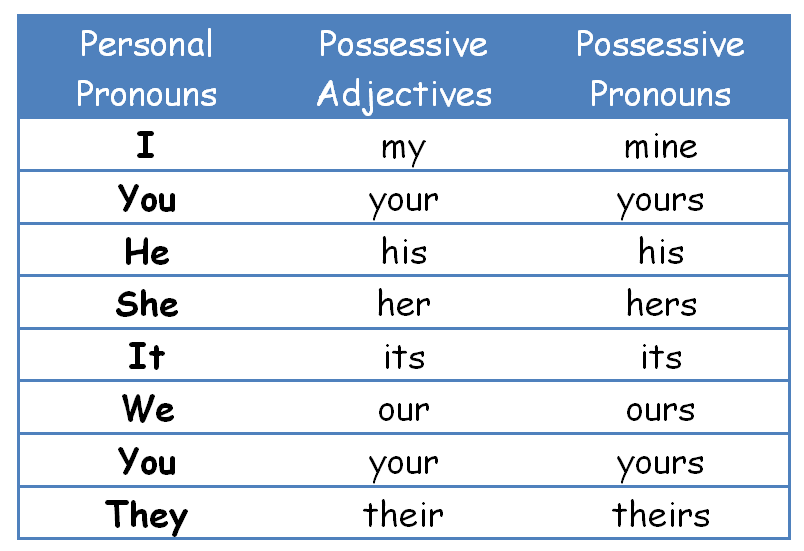Possession tells us who owns what. To show possession, we can use:
– possessive determiners (adjectives),
– possessive pronouns,
– apostrophe + s.



Possessive adjectives
Possessive adjectives function as determiners in front of a noun to describe who something belongs to. They are always used before a noun or a noun phrase:
- This is my brother. His name is Alex.
- This is my book.
- That’s your problem.
- Cindy is visiting her mother.
- Tom is cleaning his room.
The structure is:
[possessive adjective + noun phrase]
- Is Gloria your younger sister?
- Cleaning these tables is his job.



Possessive pronouns
Possessive pronouns refer to possession and ‘belonging’, too. But possessive adjectives are used before a noun, while possessive pronouns are used in place of a noun.
While possessive adjectives are used to describe the noun, possessive pronouns are used to replace the noun. They refer back to a noun or noun phrase already used, replacing it to avoid repetition:
- Those are my Converse sneakers. They are not yours.
- Your travel plans sound just as exciting as mine!
We use possessive pronouns after a verb.
The structure is:
[verb + possessive pronoun]
- This is my pencil → This pencil is mine.
- That is her dress → That dress is hers.
- These are our coats → These coats are ours.
Possessive adjectives and possessive pronouns have different forms:



via http://lfdzeclass.blogspot.com/p/possessive-adjective-and-possessive.html
Apostrophe + s
We can add apostrophe + s to a noun to show possession. We put the other noun after:
- Nick’s house looks clean.
- Selena’s books are on the floor.
- It’s nobody’s fault.
To show possession, we can add ‘s to common and proper nouns (names), singular and plural nouns:
- The boy’s sister traveled by bus to meet us.
- Sally’s hair was blond and curly.
- Someone’s car is parked in the loading zone.
- The children’s play received a standing ovation.
- The two sisters’ house is next to mine.
Here’s a good video from GoEnglish explaining the difference between possessive adjectives and pronouns:
See also: